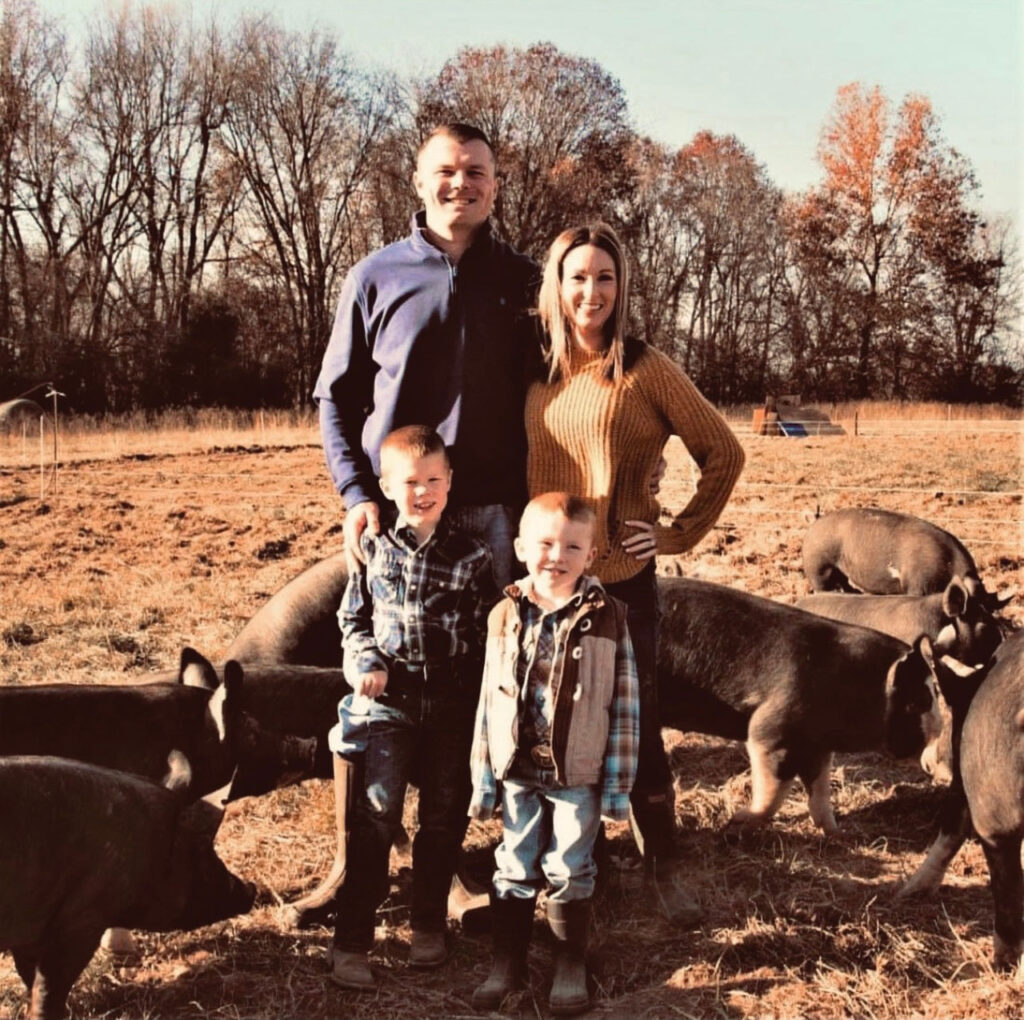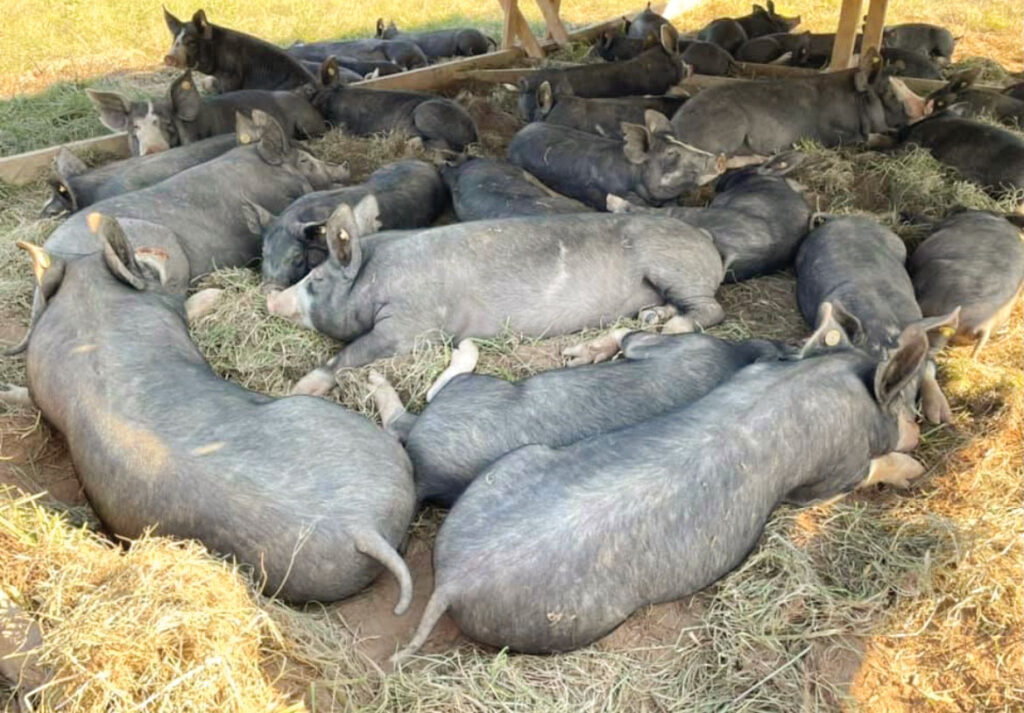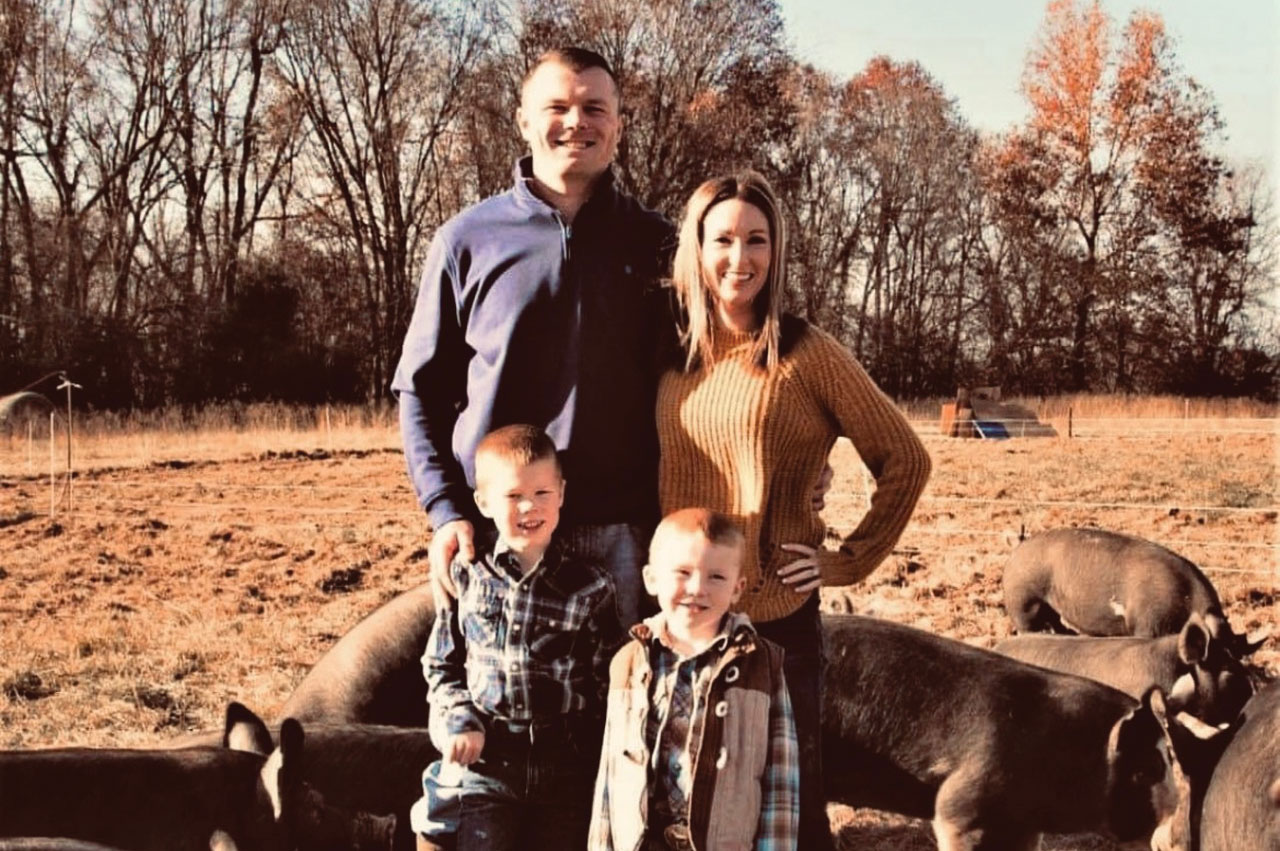
Jesse and Jessica Thurman offer pasture-raised, farm-fresh pork from Berkshire pigs
BOIS D’ ARC, MO. – On the beautiful bucolic backroads of Bois D’ Arc, Mo., Jesse and Jessica Thurman own and operate NuVenture Farms, where they raise pastured- Berkshire pork.
The couple always wanted acreage, and after leaving active-duty Army life, they decided utilization of their farm in a sustainable way aligned with their goals and dreams. It would allow them to not only provide for their family but also create a legacy for their two sons, Luke (6) and Cole (4). Farming and military life go hand-in-hand for the family. Jessica is a Missouri native and Jesse is originally from North Carolina but now calls Missouri home.
The couple spent six years in the ever-changing active-duty military lifestyle, and after their second child, decided having family close was not an option. Jesse is currently a United States Army reservist and was deployed with his unit to Poland as part of Operation Atlantic Resolve. He was stationed in Poland for almost all of 2020. During that time, Jesse and Jessica began building their new business plan or “NuVenture” for when Jesse arrived back on U.S. soil.
“I believe the hours and days of research Jesse did while on deployment played a vital role in the success we are seeing today,” Jessica noted. “He knows the numbers and logistics. That’s been a huge win and blessing for us.”
For almost four centuries, the most flavorful pork has come from the Berkshire breed. Known as the “black pig” or Kurobuta pork to many, the superior taste makes it ideal for everything from savory bacon to mouth-watering Boston butts.
Pigs for the NuVenture Farms pastured-pork program are hand-selected from Berkshire breeders across the Midwest. The Thurmans select and pick up the pigs as feeders, then raise them to a target weight of 250 to 300 pounds at processing, which yields approximately 160 to 180 pounds of pork.
Berkshire pork is famous for the perfect combination of juiciness, flavor and tenderness. The meat is well known for its marbling and distinct taste.
“It’s not just the taste,” Jessica noted. “Knowing where your meat is coming from is also very important.”
The Thurmans said they market their pork “through select marketing and research” and by word of mouth.
“We have two value streams, which are on-the-hoof sales for whole or half hogs, and our USDA retail cuts,” Jessica said.

When pigs are raised in a rotational paddock system, they are given an exceptional quality of life, the couple said. At more than 400-square-feet per pig, the pigs can roam, root, eat, wallow and freely play as intended. The benefits of the pasture aren’t just enjoyed by the pigs but also by the consumer. Benefits to the consumer range from higher Omega 3 to Omega 6 fat ratios, which are better for overall cardiovascular health.
Pasture-raised pork has higher protein and twice the amount of vitamin E compared to commodity pork. Furthermore, the heartiness of the pig reduces the risk of illness, therefore little to no antibiotics are required.
“There is such a huge difference in pasture-raised pork. It’s a niche market, and the Berkshire breed, in our opinion, is at the top of that niche.” Jesse explained.
Pigs are pasture-raised, but they also fed a locally- sourced, complete, all-around hog feed, which is available to them at all times.
NuVenture Farms had a robust first year in business and has even bigger plans for the upcoming year.
“With COVID and things people are hearing in the news, many people wanted to stock their freezers this year. They want to buy local. That was really great for us, and I hope it continues,” Jessica said.
“During the 2000s, it was all about how can we get things just in time,” Jesse said. “COVID turned everyone on their heads. I think a lot of people are going from the centralized supply chains, back to regional or local.”







